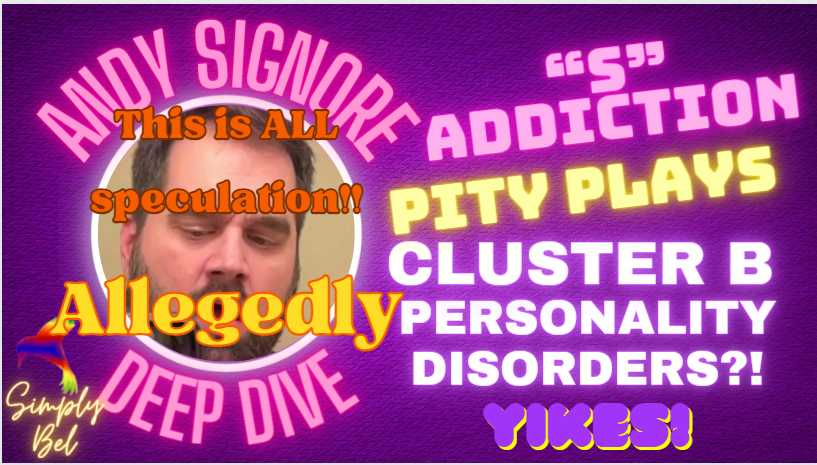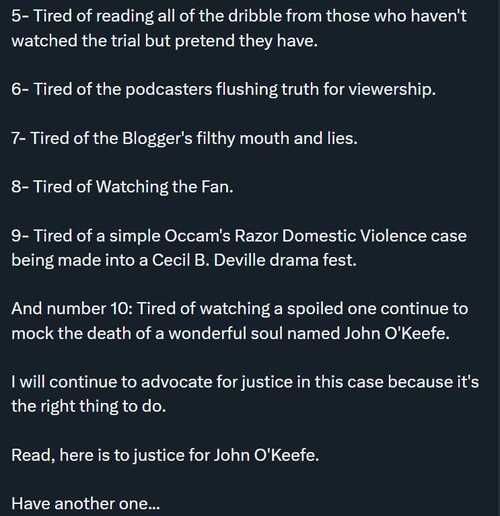I have a short posted on my YouTube channel that I grabbed from Lauren Mathias of Hidden True Crime where she mentions the "pity play" because I found it extremely interesting. She was discussing comments about Jodi Hildebrandt's past courtroom antics, where she induldged in this type of behavior. It really struck a chord with me - I've known a number of people that employ this tactic!
Dana Anderson of Lovefraud.com instructs visitors on "what you need to know about relationships with sociopaths and narcissists." In an article entitled, "The pity play," she explores this "tip-off trait of a sociopath."
According to Martha Stout, Ph.D., author of The Sociopath Next Door, the best clue that you are dealing with a sociopath is the pity play.
“The most reliable sign, the most universal behavior of unscrupulous people is not directed, as one might imagine, at our fearfulness,” Stout says. “It is, perversely, an appeal to our sympathy.”
The combination of consistently bad or inadequate behavior and frequent pity plays, Stout continues, is the closest thing to a warning you’ll ever get that you are being manipulated by a sociopath.
Dr. Stout outlines the following list describing other tacticts a sociopath might use:
- Charm
- Risk-taking, and convincing others to do it with them
- Recognizing a person who is decent and trusting—the perfect target
- Sexual seduction
- Crocodile tears—especially when sociopaths are about to be confronted
- Righteous indignation—Plan B when sociopaths are about to be confronted
- Exploiting social and professional roles
- Gaslighting—making victims doubt their own perceptions
A sociopath has no conscience, no emotional attachment to others, and no ability to love. For a sociopath, Stout says, “life is reduced to a contest, and other human beings seem to be nothing more than game pieces, to be moved about, used as shields or ejected.”
So what does a sociopath want? According to Stout, a sociopath wants only to win.
While it seems one cannot be both sociopathic and narcissistic there is some overlap in behaviors as they are both cluster b personality disorders. The other two disorders in this cluster are borderline & histrionic. There is so much information that I'm having difficulty parsing through it all.
Since I'm exploring all of this in my quest to understand and bring awareness to Andy Signore's problematic behavior I decided to explore his admitted sex addiction. Curiously, it is generally displayed by those with borderline personality disorder. My research led me to: His Sex Addiction, Your Recovery. She's got some incredible insights and resources.
These behaviors seen frequently in the sex addict include:
- impulsive behavior
- instability of moods
- manipulative behavior
- lack of empathy
- lack of remorse, guilt or shame (but may put on a good show of fake emotions)
- gaslighting
- compulsive lying, and seeming to actually believe the lies
- shifting blame, inability to take responsibility
- lack of conscience
It seems our sexually addicted spouses tend to display the attributes of Cluster B.
This author, too, read The Sociopath Next Door and has gleaned the following:
A person with a conscience (presumably you) is mystified by the behavior of a person without a conscience (presumably the sex addict). A sociopath has no moral code or "truth", and it makes dealing with them quite perplexing for those of us who are incapable of unabashed dishonesty.
The sociopath (pathological liar) has an advantage. He has no conscience to make him feel guilty. He will, with great delight, play on your conscience. He will:
Remind you of your moral responsibility
Repeat back to you your morals
Accuse you of what he is guilty himself of doing
Talk at a million miles an hour - usually on a different topic - so you can't focus on the issue at hand
Present a fake sense of morality, as if he is morally superior to you
Act as if things that were said, were never said, or things that happened never happened
Circling back to "pity play" it is also part of the cycle of narcissistic abuse:

It's generally used in the "re-engagement" phase:
Pity plays. The perpetrator seeks to evoke sympathy, compassion, or guilt in the victim by claiming that they have also been victimized and experienced hardships. By soliciting the victim’s pity the perpetrator can draw them into providing emotional support, attention, and other forms of validation, jump starting the relationship once again.
I'm not saying Andy has any of these personality disorders, I'm certainly not a mental health expert. I explore these topics in an attempt to understand what my friends and I endured during our tenure at Popcorned Planet. And as a resource for those who experience(d) the same.
Stay tuned for more about the narc abuse cycle, adult grooming and transactional vs relational interactions. And much more, I'm sure!


























